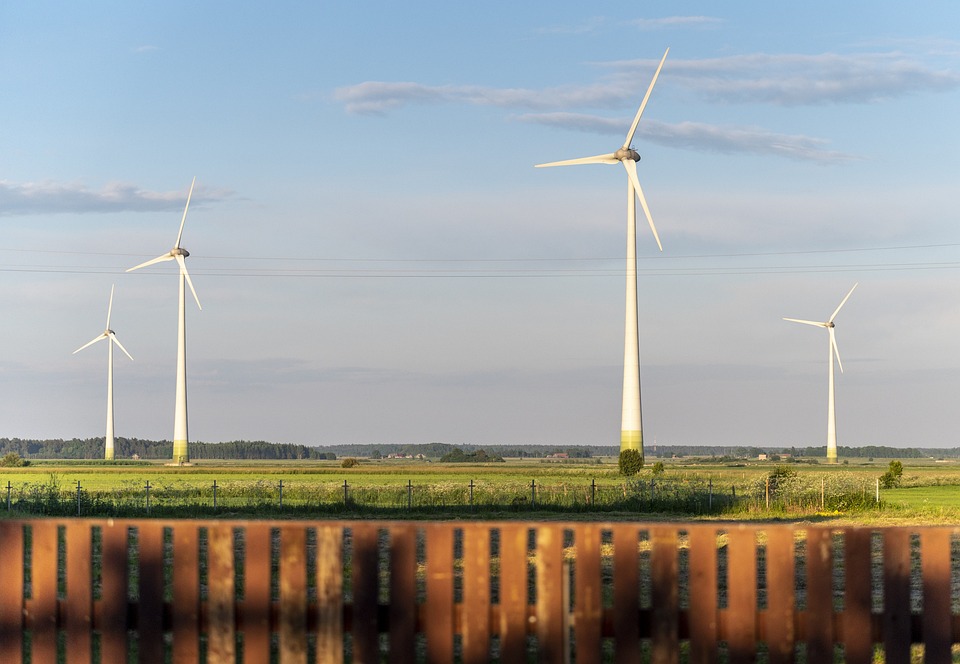Renewable Energy Revolution: The Impact of Policy on Climate Change Mitigation
As the world continues to grapple with the challenge of climate change, the need for effective and sustained efforts to reduce greenhouse gas emissions has never been more pressing. One crucial strategy for achieving this goal is the widespread adoption of renewable energy sources, which are capable of providing a low-carbon alternative to fossil fuels. In this article, we will examine the impact of policy on the renewable energy revolution and the potential for climate change mitigation.
Policymaking for a Low-Carbon Future
To date, government policies have played a crucial role in driving the development and deployment of renewable energy technologies. Through a combination of tax credits, grants, and subsidies, policymakers have encouraged private sector investment in wind, solar, and other renewable energy sources. As a result, the cost of renewable energy has declined significantly over the past decade, making it increasingly competitive with fossil fuels.
Feed-in Tariffs (FITs) and Renewable Portfolio Standards (RPS)
One popular policy mechanism has been the use of Feed-in Tariffs (FITs) and Renewable Portfolio Standards (RPS). FITs guarantee a set price for renewable energy producers, ensuring a stable and attractive rate of return for their investment. RPS policies, on the other hand, require utilities to generate a certain percentage of their electricity from renewable sources, thereby driving demand for these technologies.
The success of FITs and RPS can be seen in countries like Germany, where the solar sector has experienced rapid growth following the introduction of the Energiewende (Energy Transition) policy package. Today, Germany is one of the world’s leading renewable energy producers, with a share of over 40% of its electricity generated from solar and wind power.
The Impact of Policy on Climate Change Mitigation
As the world struggles to keep global warming below 1.5°C, the role of renewable energy in reducing greenhouse gas emissions cannot be overstated. The Intergovernmental Panel on Climate Change (IPCC) has made it clear that in order to achieve this goal, CO2 emissions must reach net-zero by 2050 at the latest. The deployment of renewable energy can play a crucial role in achieving this target, and policy can be a key enabler.
Job Creation and Economic Benefits
Not only does the renewable energy industry offer a cleaner, more sustainable alternative to fossil fuels, but it also generates significant economic benefits and creates jobs. According to a study by the International Renewable Energy Agency (IRENA), the renewable energy sector has the potential to create up to 46 million jobs globally by 2050, with wind and solar technologies being among the biggest employers.
In addition, a shift towards renewable energy can stimulate local economies by generating new revenue streams for farmers and landowners hosting solar and wind installations, and creating new opportunities for indigenous communities and small-scale farmers to participate in the renewable energy sector.
Challenges and Opportunities Ahead
Despite the progress made, the transition to a low-carbon economy is far from over. Remaining challenges include ensuring a stable and predictable policy framework, addressing the intermittency of renewable energy sources, and scaling up global energy access and infrastructure to accommodate the growth of the sector.
The Role of Grid Storage and Grid Modernization
To overcome the intermittency of renewable energy sources, advances in grid storage technologies, such as batteries, pumped hydro storage, and compressed air energy storage, will play a crucial role. In addition, the widespread adoption of smart grid technologies, which enable the integration of decentralized renewable energy sources into the grid, will be essential for maintaining reliability and efficiency.
As we move forward, it will be critical to strike a balance between the need for a stable and predictable policy framework, the need to encourage private sector investment and innovation, and the need to prioritize climate change mitigation and energy access for all. With the right policy environment and technological innovations, we can unlock the full potential of the renewable energy revolution and create a low-carbon future for generations to come.
Conclusion
The transition to a low-carbon economy is not a solo act, but a collaborative effort between governments, industry leaders, and citizens around the world. The policies implemented to date have made a significant impact, and there is no going back now. As the renewable energy revolution continues to grow, we must be guided by a shared commitment to a sustainable future, fueled by clean energy and innovative thinking.
FAQs
-
What are Feed-in Tariffs (FITs) and Renewable Portfolio Standards (RPS)?
Feed-in Tariffs (FITs) guarantee a set price for renewable energy producers, while Renewable Portfolio Standards (RPS) require utilities to generate a certain percentage of their electricity from renewable sources.
-
How does renewable energy impact climate change mitigation?
Renewable energy can play a crucial role in reducing greenhouse gas emissions and mitigating climate change, as it is capable of providing a low-carbon alternative to fossil fuels.
-
What are some of the challenges facing the transition to a low-carbon economy?
Remaining challenges include ensuring a stable and predictable policy framework, addressing the intermittency of renewable energy sources, and scaling up global energy access and infrastructure.
-
How will advances in grid storage and grid modernization address the intermittency of renewable energy sources?
Advances in grid storage technologies and smart grid technologies will enable the integration of decentralized renewable energy sources into the grid, maintaining reliability and efficiency.
-
What is the role of the private sector in driving the renewable energy revolution?
The private sector plays a crucial role in driving innovation, investing in renewable energy technologies, and scaling up production and deployment.
-
What are the potential economic benefits of the renewable energy industry?
The renewable energy industry has the potential to generate significant economic benefits and create jobs, as it shifts the global economy away from fossil fuels and towards low-carbon solutions.


_2.png?w=150&resize=150,150&ssl=1)
.png?w=150&resize=150,150&ssl=1)


